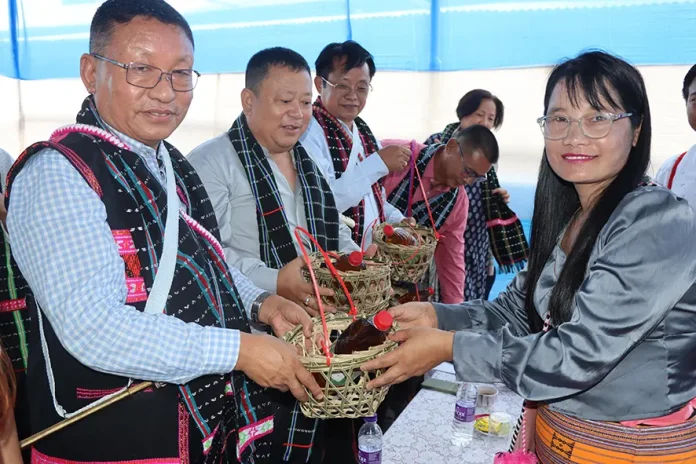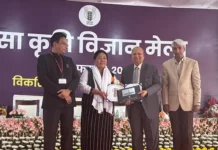DC urges entrepreneurs to explore value-added agri products
TEZU, 12 Aug: Lohit Deputy Commissioner KN Damo urged young entrepreneurs to explore opportunities in value-added agricultural products, like turmeric powder and herbal goods, citing growing demand for these items in the wellness markets.
Speaking after inaugurating a modern cold-pressed mustard oil extraction unit on Tuesday, the DC urged the proprietor of the unit to maintain quality standards, highlighting that consistency and trust are the foundation of brand success in the edible oil market.
Damo acknowledged the importance of such local ventures in strengthening the district’s economy and reducing reliance on imported edible oils. He announced that the district administration would extend promotional support for such indigenous products through public events, souvenirs, and mementos to enhance visibility.
The DC strongly appealed to the local communities to move away from opium cultivation. Highlighting the consequences of opium consumption and cultivation, Damo urged them to adopt sustainable, health-promoting crops that can improve both livelihoods and social wellbeing.
Agriculture Joint Director N Somnyan highlighted the evolution of mustard oil production in the region, from traditional wooden ghanis to modern mechanized systems. He explained the advantages of cold-pressed oil over heat-extracted variants, particularly in preserving antioxidants, vitamins, and other beneficial compounds.
While noting the higher cost of cold-pressed oil, he emphasized its nutritional value and urged the public to prioritize health over short-term affordability.
District Agriculture Officer Nyage Loya highlighted Lohit district’s fertile plains and favourable agro-climatic conditions, terming them ideal for expanding diverse agricultural ventures.
He reaffirmed the department’s commitment to supporting local entrepreneurs through technical guidance and timely subsidy facilitation under schemes like the National Mission on Edible Oils. He encouraged farmers to diversify into other oilseeds such as sesame, groundnut, and oil palm crops with both domestic and export potential.
Addressing public concerns over oil palm cultivation, the DAO clarified that scientific studies and local experiences indicate it does not degrade soil quality.
He cited areca nut plants – botanical relatives of oil palm – which are successfully cultivated in the region without adverse environmental impact.
Bachamso Chiba, the proprietor of M/s BC Enterprises stated that the project is designed to promote healthier edible oil options, generate local livelihoods, and reduce dependency on non-local oil supplies. He expressed hope that the enterprise would serve as a model for small-scale agro-industrial entrepreneurship in the state. (DIPRO)





